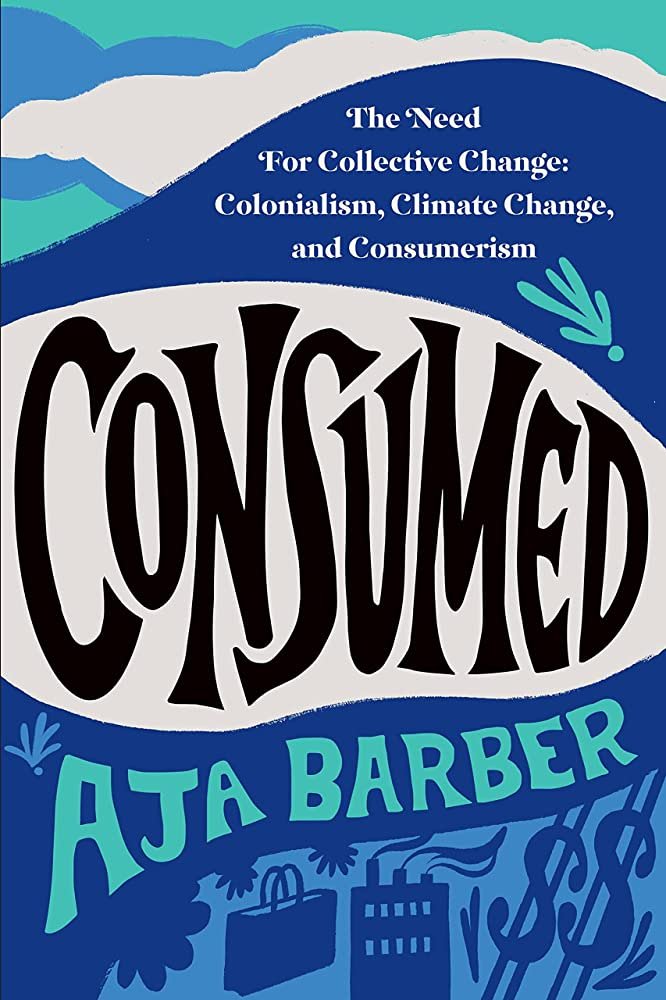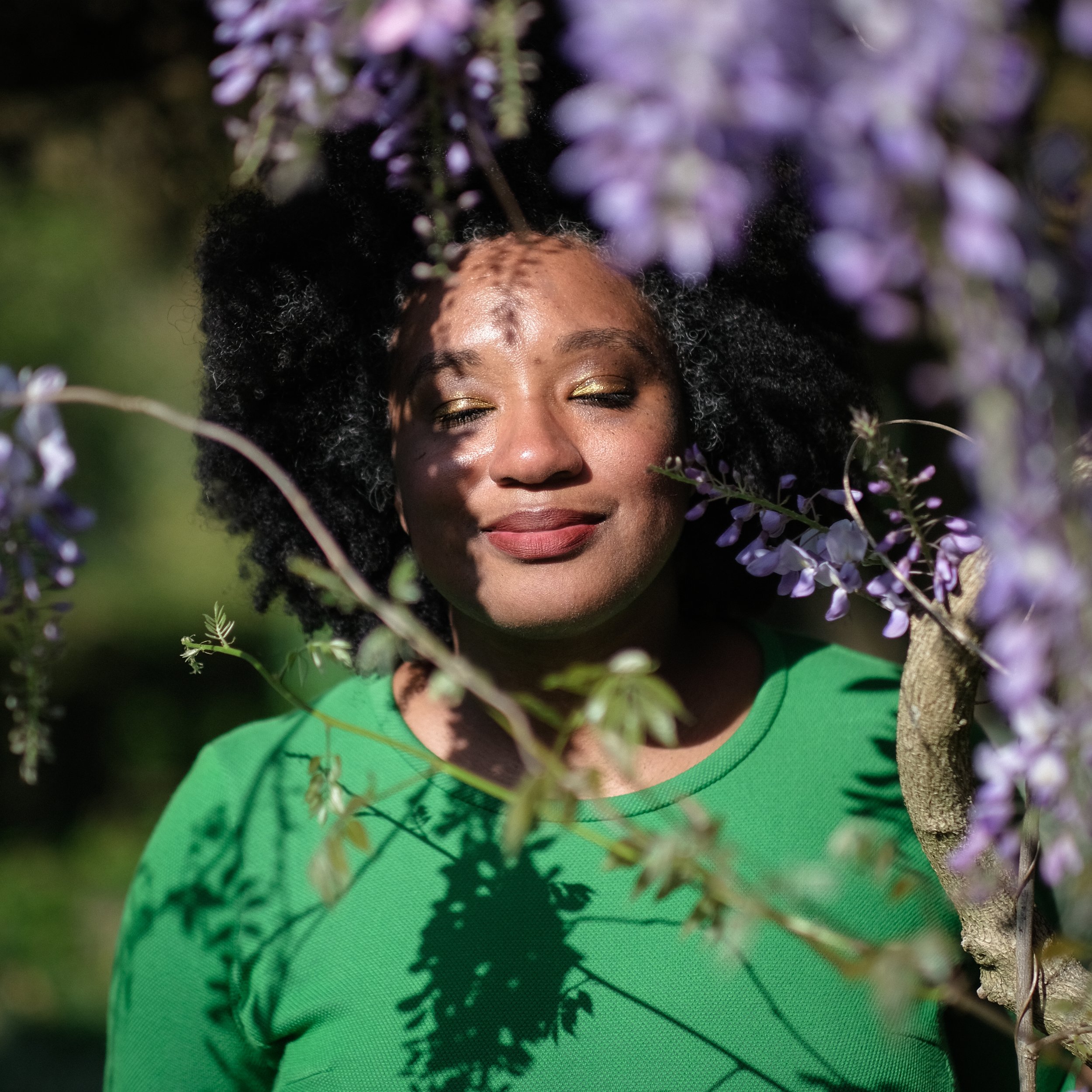Author Feature: Aja Barber
Aja Barber, writer, stylist, and consultant, work aims to tackle the ideas behind privilege, wealth inequality, racism, feminism, colonialism and how to fix the fashion industry with all these things in mind.
Aja’s latest book, Consumed: The Need for Collective Change: Colonialism, Climate Change, and Consumerism, is a true testament to this mission as it explores the intersections of sustainability and the fashion landscape.
“A call to action for consumers everywhere, Consumed asks us to look at how and why we buy what we buy, how it's created, who it benefits, and how we can solve the problems created by a wasteful system.”
Grab a copy of Consumed: The Need for Collective Change: Colonialism, Climate Change, and Consumerism here!
Be sure to tune into Aja’s social media for more information on her activism, book, and more. (Facebook, Instagram, and Twitter.)
“Let's get out of consumerism together.”
You can also support Aja on Patreon if you're interested in learning about this topic every day through daily posts, a newsletter, and more!
FEMINIST caught up with the author, Aja Barber, to learn more about her book, Consumed… and her journey creating it in our interview below. ⬇️
Q: What is your personal mantra?
AB: "If you stay alive for no other reason, please do it for spite." - Maria Bamford
That one always makes me chuckle.
Q: What audience do you hope to reach? Why does your intended audience need to hear and understand your message?
AB: I really think everyone who wears clothes can get in on the ethical fashion conversation. Clothing is made by human hands. But anyone who cares about climate crisis should care. I think more and more people are waking up to the idea that fast fashion doesn't serve us, our fellow human, the planet or our pocketbook.
Q: What do you hope readers walk away with?
AB: I want people to feel empowered and think about consumerism less from a stance of "I'm losing something if I decide to no longer participate in this cycle" to "I feel free and happy and no longer feel like how I spend my money is dictated by a pressure I can't explain".
Q: What was the most challenging part for you to write?
AB: I didn't consider the book super challenging because so much of it was already on my platform. The bigger challenge is to get people in the general public to understand that it's not classists to discuss these systems. It's actually classist to not include garment makers (millions of them trapped in wage poverty) in these conversations and for too long we've been doing that when speaking about fast fashion.
Q: What inspires you to continue educating others about consumerism through an intersectional lens?
AB: I think as people embrace progressive ideas they need to understand how these ideas factor into their every day lives. So it's simple things like realizing that buying exploitatively priced clothing you don't need as a pick-me-up on a day when perhaps we feel a bit crappy isn't actually intersectional at all.
Q: Which part of the book was the most eye-opening for you to write about?
AB: Learning that 15 million US citizens suffer from a spending addiction was pretty mind blowing but it makes sense when you look at how we've been buying clothes.
Q: To what extent does Consumed... touch on capitalism through its ties to the patriarchy?
AB: It's a read-between-the-lines message. On the first page I address the billionaire owners of fast fashion companies and make sure to note that a large percentage of them are ... men. Cis white men to be exact. Interesting. But yet ... the majority of the garment workers on the planet are non white women (and folks of other marginalized genders). That is NOT a coincidence.
Q: In your opinion, why is a resource like Consumed necessary for collective transformative action?
AB: People will argue about the effectiveness of individual action until they're blue in the face. But at the end of the day, we can't change this system until we change ourselves, our culture and how we interact with these systems. No one's gonna regulate a system that no one sees the problems with.
Q: The process of “learning” and “unlearning” is used as a tool throughout your work. Can you describe how this strategy is useful in unpacking huge social issues like privilege, wealth inequality, racism, feminism, and climate change?
AB: You can't change what you don't understand. And in the words of Maya Angelou "Do the best you can until you know better. Then when you know better, do better".
Q: How is consumerism interconnected with the intersectional feminist movement?
AB: I struggle to pick just one. But let's zoom out. Climate crisis is a feminist issue because women and girls will be impacted in much more difficult ways. It's a threat multiplier. Now one of the impacts of climate crisis is a lack of natural resources. Such as water scarcity. If fast fashion brands are draining lakes to grow cotton for clothes they might not sell and even incinerate when it's unsolt, that is just excellerating a process where marginalized women will of course struggle the most.
Q: What does being an intersectional feminist mean to you?
AB: It means our feminism is expansive and includes all marginalized genders or it is shit.
Discover Consumed: The Need for Collective Change: Colonialism, Climate Change, and Consumerism by Aja Barber
→ Get your Copy at this link.
For more books discover the FEMINIST READING LIST.





